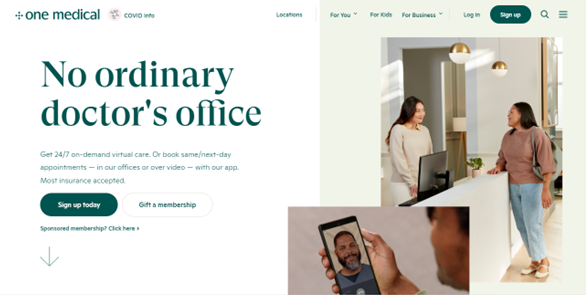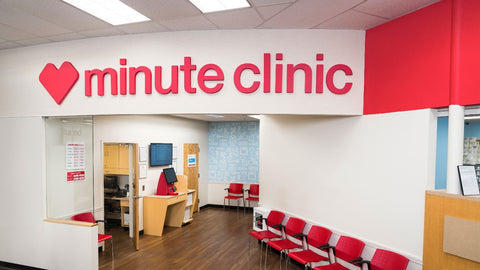
Taking the Stress Out of Healthcare Part 5: The Future of Health Care is Here Now.
This 7-part series is based on what I learned at a Healthcare Conference in Baltimore, MD, sponsored by an organization called Planetree that is seeking to dramatically improve the quality of patient care in hospitals here in the US and around the world.
In the previous installment, I wrote about issues plaguing healthcare today. The list included the excessive forms a patient must fill out, the long wait for a doctor visit that typically lasts less than ten minutes and the very confusing, very large bills that ultimately follow. These are all issues that get in the way of the Planetree goal of improving the patient experience and creating what they call: patient-centered care.
Then I wrote about industry disruptors who had come along in other trades like the taxi business (Uber), the DVD rental business (Netflix) and the online shopping business, (Amazon) that turned their particular industry upside down with new, innovative ways of doing business. The keynote Speaker at the conference, Jason Wells warned that if the healthcare industry wasn’t willing to make some dramatic changes soon, they too could lose a significant share of their market to industry disruptors that were only just starting to appear on the horizon.
Wells cited ONE MEDICAL, as the perfect example of just such a health industry disruptor. ONE MEDICAL (which was recently acquired by Amazon) is setting out to do healthcare differently by providing easy access to services at lower cost including:
- Same/next day appointments
- In person or virtual appointments
- Appointments that start on time
- Longer appointments so the patient doesn’t feel rushed
- Drop-in lab services at all locations
According to their website: “One Medical is a human-centered, technology-powered, U.S. primary care organization on a mission to make quality healthcare more affordable, accessible, and enjoyable through a seamless combination of in-person, digital, and virtual care services.” This description, by the way, uses a lot of the same language that the Planetree organization uses to describe what patient-centered care should look like.
Senior Vice President of Amazon Health Services agrees: "We think health care is high on the list of experiences that need reinvention. Booking an appointment, waiting weeks or even months to be seen, taking time off from work, driving to a clinic, finding a parking spot, waiting in the waiting room then the exam room for what is too often a rushed few minutes with a doctor, then making another trip to a pharmacy—we see lots of opportunity to both improve the quality of the experience and give people back valuable time in their days.”

Wells pointed out that these healthcare industry disruptors, which also include CVS and Walgreens are all making access to health much easier, cheaper and quicker. Walk into over 1,100 CVS locations and you are likely to find a MINUTE CLINIC where clinicians can screen, diagnose and treat customers and provide follow-up care for chronic conditions as well as provide services for minor injuries and illnesses, immunizations and annual exams, in-store or virtually. These are walk-in clinics where you are in and out in minutes instead of hours.
If you are not in the healthcare industry, there’s much to learn from the industry disruptors we’ve focused on in these last three installments. One way we could look at this is through the old adage: change or die. That’s what happened to Blockbuster. By the time they adopted a mail-in program similar to Netflix, it was too late, their death knell had already sounded.
A slightly different view of this, is the through the lens of the Eastern mantra: Desire change. Most of us instinctively (and sometimes vehemently) resist change. By finally realizing that “if you do what you’ve always done, you’ll get what you’ve always gotten,” you will see the importance of embracing change. In order to keep up with the times, we all need to ask ourselves: What are the ways we (or I) have ALWAYS done business that could be done better, faster, cheaper or in a more customer/user or even family friendly way? These are ALL the areas where WE need to desire change. Because if we don’t, industry disrupters will come along and essentially steal our hard-fought place in line by essentially doing it for us.
In the next installment we’ll look at how a healthcare concept called “personomics” can help any business change for the better.





James Porter
Author